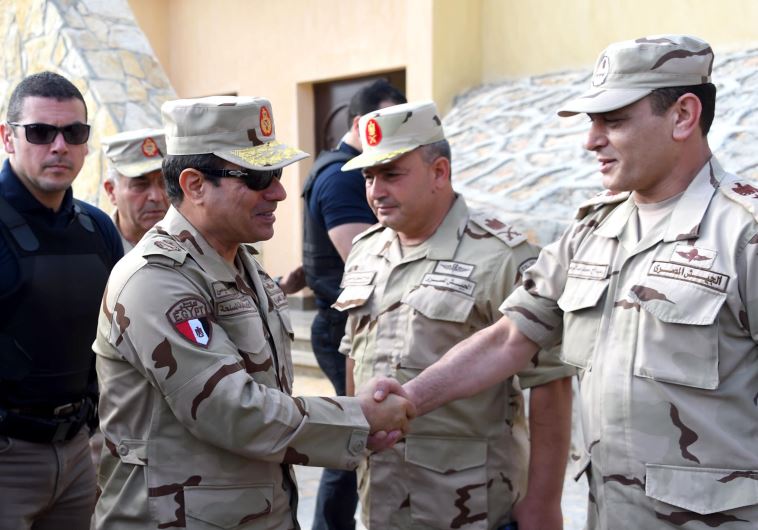In battle to destroy ISIS, Egypt's Sisi struggles to rally Sinai Beduin tribes
The Egyptian president sees Sinai militants as an existential threat, but the army's initiative to recruit Sinai tribal fighters is failing.
 Al-Sisi in uniform making trip to Sinai(photo credit: MOHAMED ABDELMOATY / EGYPTIAN PRESIDENCY / AFP)ByAHMED ABOULENEIN/REUTERS
Al-Sisi in uniform making trip to Sinai(photo credit: MOHAMED ABDELMOATY / EGYPTIAN PRESIDENCY / AFP)ByAHMED ABOULENEIN/REUTERS